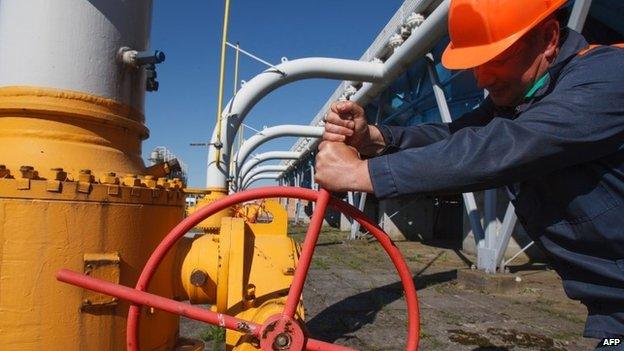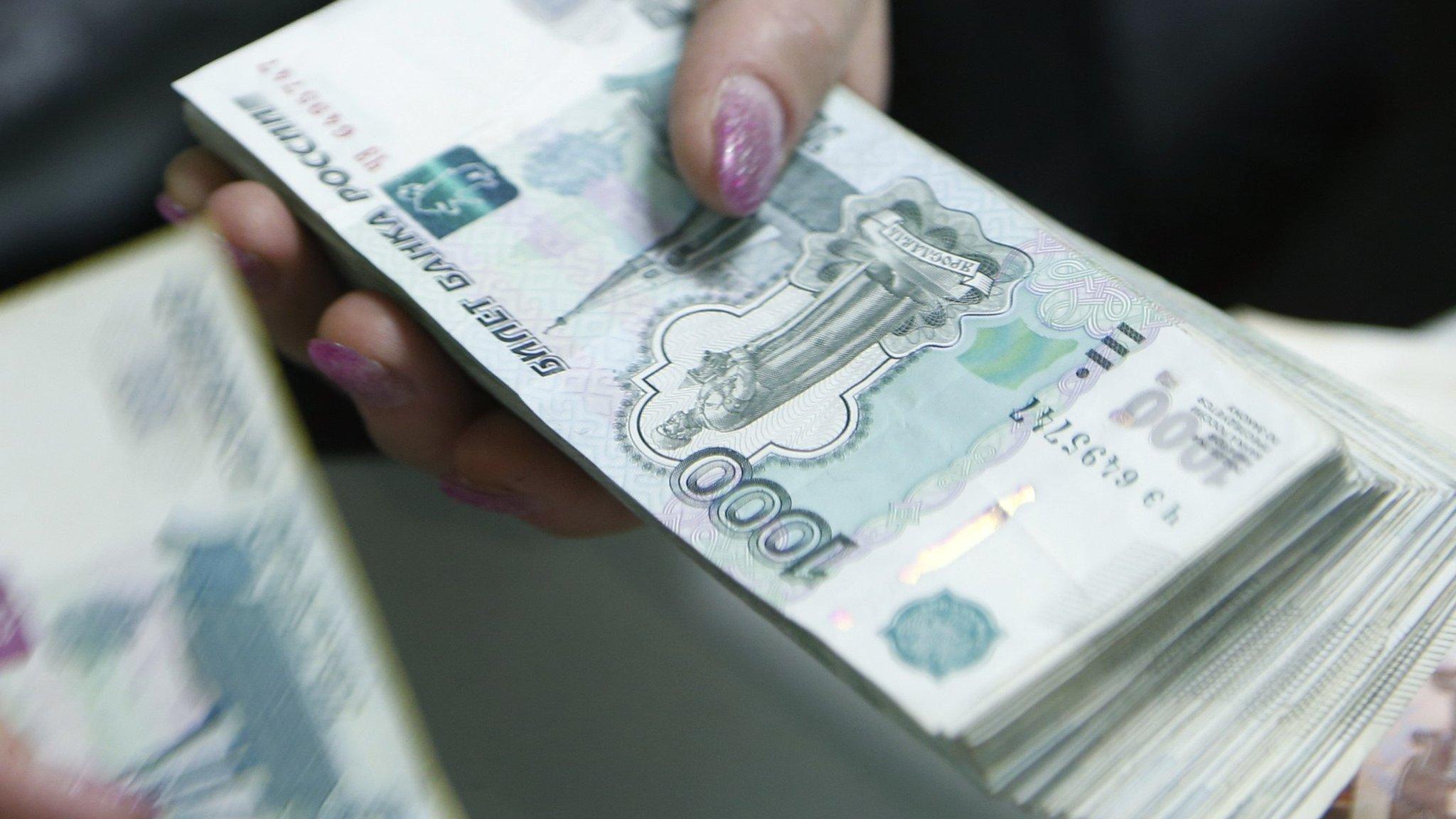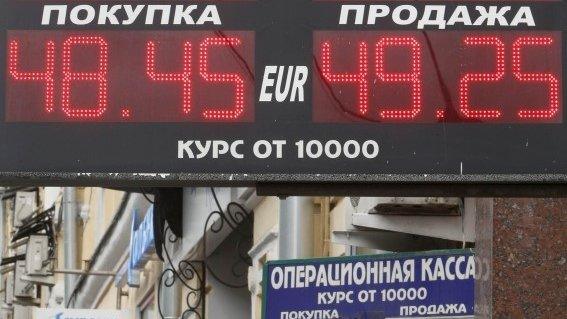Rouble rebounds as central bank says it could take action
- Published

The impact of the rouble's decline has been compounded by falling revenues from oil and gas
The rouble rebounded on Friday as Russia's central bank said it could intervene "at any moment" to prop up the currency.
Having fallen to fresh lows against the dollar and euro as traders dumped the rouble, it bounced back to trade 2% up.
The rouble's recent fall has piled pressure onto Russia's ailing economy.
The central bank said fluctuations in the currency's value "were causing concern for society" and posed "a risk to financial stability".
The weakness was caused by several fundamental factors, including falling oil prices and restrictions on access to finance on the international capital markets, the bank said.
On Wednesday, the central bank decided to limit its intervention in the financial markets.
But a one-off intervention was increasingly seen as likely, with analysts saying that Friday's initial 3% fall looked like panic. Analysts are also forecasting a rise in interest rates from the current 9.5%.
The rouble has lost more than a quarter of its value since the start of 2014.
Western sanctions over the conflict in Ukraine have played a major part in the currency's decline, by making Russia an unattractive place to keep funds.
The fall in the oil price is also important, as the export of crude is a major source of foreign currency for Russia.
The central bank has been using its own reserves in an attempt to contain the rouble's fall, but on Wednesday announced limits the amount of intervention - which sparked a sell-off.
"This is full-blown panic, with signs of a self-fulfilling currency crisis," Dmitry Polevoy, chief Russia economist at ING Bank in Moscow, said ahead of the central bank's comments. "At such times, the central bank should intervene. After all, if this isn't a risk to financial stability, then what is?"
Maxim Korovin, a forex analyst at VTB Capital, in Moscow, said the rouble's depreciation "clearly poses certain risks for financial stability".
Capital Economics said in a report that it also expected interest rates rise to as much as 12% to make it more attractive to investors to hold the currency.

Analysis: Andrew Walker, economics correspondent, BBC World Service
Russia has a catalogue of economic problems and the downward trend of the rouble makes them even harder to fix.
Inflation is too high, now more than 8%. A falling currency drives up import prices and so aggravates that problem.
The usual policy tool for dealing with inflation is raising interest rates, which can work partly through the impact on the currency. Higher rates make the country more attractive to invest in.
But official interest rates in Russia are already high, and the economy is struggling - the IMF recently described the outlook as bleak, external.
Further interest rate increases may come as the Bank tries to deal with inflation, capital flight and the weakness of the currency, but normally the dismal growth outlook would call for exactly the opposite response.

- Published20 October 2014

- Published16 September 2014
